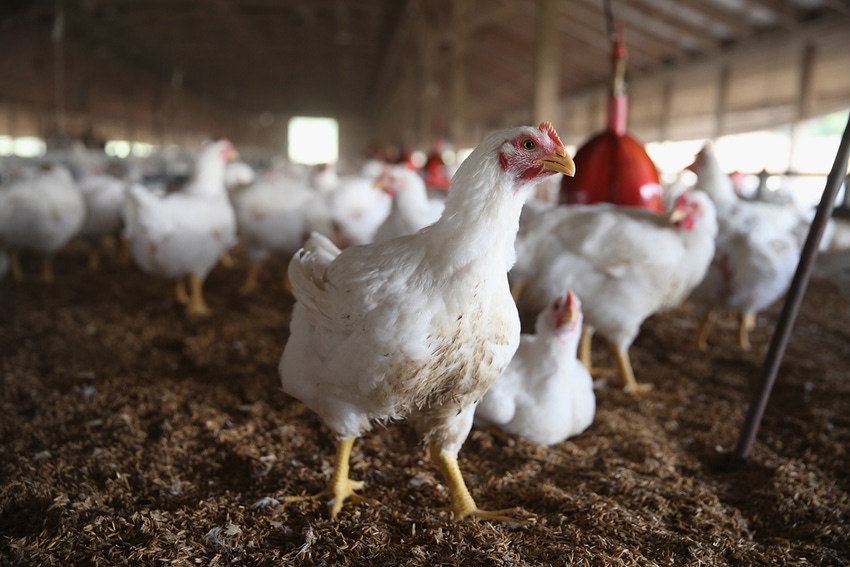California poultry industry taking brunt of HPAI
Total number of birds affected in the U.S. since February 2022 nearing 82 million.

California poultry producers continue to take the brunt of highly pathogenic avian influenza (HPAI), the latest U.S. Department of Agriculture Animal & Plant Health Inspection Service (APHIS) numbers show. Over the past week, 1.38 million birds in California alone were reported as having the virus, and 4.73 million commercial birds have been depopulated in the state since December 13.
While most of the operations in California have been table egg production operations, the latest cases reported included two large broiler operations. Merced County reported a table egg pullet operation of 764,300 birds and a broiler chicken operation of 534,800 birds were affected. Meanwhile, Sonoma County confirmed the virus in a broiler chicken operation of 77,900 birds.
A table egg pullet operation with 240,000 birds in Rice County, Kan., was also being depopulated, APHIS reported. A turkey operation of 41,000 birds in Washburn County, Wis., also added to the rising number.
Officials nationwide continue to urge backyard and commercial poultry owners to practice strict biosecurity protocols.
The World Organization of Animal Health (WOAH) reported Dec. 28 that avian influenza has had a staggering toll, with over 500 million birds lost to the disease worldwide since 2005. The recent shift in the disease’s ecology and epidemiology has heightened global concern, leading WOAH to call for a review of existing prevention and control strategies.
Vaccinated duck farm in France contracts virus
In an effort to curb the spread of avian flu, France launched last October a mandatory vaccination campaign targeting duck farms as they are more vulnerable to it. Farms of more than 250 birds and whose products are meant to be sold in the form of meat or foie gras were required to vaccinate their birds. A total of 64 million ducks at 2,700 farms were vaccinated, costing approximately $105 million, 85% of which was financed by the government.
Despite the effort, the country’s agriculture ministry announced a recent setback had occurred when a vaccinated duck farm of 8,700 birds in the Vendee region had still contracted the virus. The vaccine is not supposed to fully protect birds from catching the disease but, rather, limits the spread.
In December, France had also raised the risk level of avian flu to “high,” mandating that all poultry farms move birds indoors.
Vaccine progress in the U.S.
A USDA spokesperson confirmed to the American Veterinary Medical Association in late December that the department’s Agricultural Research Service (ARS) has completed initial testing of five HPAI vaccine candidates. One of the vaccines was developed in-house by USDA, while four others were commercial. According to the spokesperson, studies showed that the five vaccines reduced oral and cloacal virus shedding significantly and provided nearly 100% clinical protection in chickens.
“ARS scientists have also continued to work on vaccine testing. They will evaluate vaccine efficacy in turkeys and the duration of immunity in several avian species. They have developed and will continue to optimize and validate the diagnostic tests needed with vaccination as well,” the USDA spokesperson said. “These are all longer-term studies. We estimate the turkey efficacy and duration of immunity study results will be available during summer 2024.”
Even so, WOAH, citing the rapid evolution of the virus as well as the potential for trade implications, said vaccination programs should remain up to each country’s discretion.
About the Author(s)
You May Also Like





